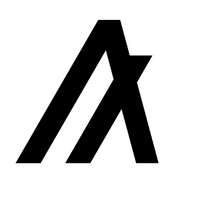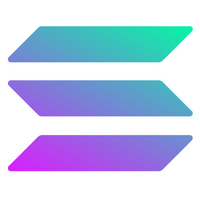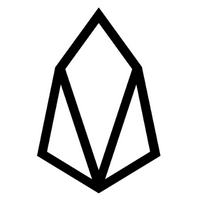Ethereum is far from the only cryptocurrency on the market today. In fact, there are over 1,500 different cryptocurrencies available with more being created all the time. If you’re looking for an Ethereum alternative or competitor, there are plenty of options to choose from.
We’ve compiled a list of Ethereum alternatives and competitors according to finance experts. Take a look and see if any of these cryptocurrencies recommended by crypto experts fit your needs better than ETH. Let’s get started!
Why Do People Use Ethereum Alternatives?
- Scalability issues need to be addressed: Ethereum’s blockchain is currently unable to process large numbers of transactions quickly, which limits its usefulness for some applications. Ethereum will need to scale in order to meet the demand of its growing user base. This could prove to be a challenge, as the platform is still in its early stages of development.
- Lack of privacy: Ethereum’s public nature means that transaction data is visible to anyone, which could be a problem for certain types of transactions.
- Smart contracts can be complicated: The programmable nature of smart contracts means that they can be quite complex, and this can lead to errors that can have costly consequences.
- Vulnerabilities in smart contracts: Some high-profile hacks have exploited vulnerabilities in smart contracts, leading to the loss of millions of dollars worth of ETH.
- DAOs are still experimental: Decentralized autonomous organizations (DAOs) are a new and experimental way of organizing projects on Ethereum, and they have yet to be proven.
- The Ethereum network is partially centralized: – A large portion of the ETH supply is controlled by a small number of wallets, which could lead to centralization issues in the future.
- The price of ETH is volatile: Like all cryptocurrencies, the price of ETH can be quite volatile, which makes it a risky investment.
- Regulatory uncertainty: The regulatory landscape for cryptocurrencies is still uncertain, which could impact Ethereum’s use case as a platform for decentralized applications.
- Competition from other platforms: Ethereum faces competition from other blockchain platforms that offer similar features or benefits.
These are just some of the cons associated with Ethereum. While the platform does have a lot of potential, it’s important to be aware of these risks before investing.
15 Ethereum Alternatives in 2023 (According to Crypto Experts):
1. Algorand (ALGO)

Marc Arbones, Founder & Editor at Altcoins Mastery: I see Algorand (ALGO) as an Ethereum competitor because of its faster transaction speeds, lower fees, advanced virtual machine, programming flexibility, and ease of use. Algorand is the first L1 network to be protected from quantum computers.
Algorand was created by computer scientist and MIT professor Silvio Micali. Silvio Micali is also the recipient of a 2012 Turing Award for his pioneering work in cryptography. Silvio Micali and Jing Chen (Stony Brook Professor) authored the Algorand white paper in 2017 and officially launch Algorand in 2019.
Algorand was created to address some of Ethereum’s major shortcomings, such as scalability (low speed and high fees), interoperability (cross-chain products), and technical complexity (high entry barriers for developers). Algorand aims for scalability without sacrificing security or decentralization (known as Blockchain Trilemma) with a unique design structure that differs from typical cryptocurrencies.
Similarities
Like Ethereum, Algorand is a smart contract platform that allows anyone to build decentralized applications known as dApps. Ethereum and Algorand are at the heart of decentralized finance (DeFi), which aims to create a more open and fair financial system. Algorand and Ethereum 2.0 use a Proof-of-Stake (PoS) mechanism to attain consensus..
Differences
There are a few differences that make Algorand unique:
- Higher Transaction Speed: Algorand can process over 6,000 transactions per second while Ethereum has a 12-15 TPS.
- Cheaper (No gas fees): There are no gas fees in Algorand. The minimum fee for a transaction is only 0.001 Algos. The current average gas price on Ethereum is $2.36 but the highest gas cost of $196.638 was recorded on May 1, 2022.
- Ease of Use: Algorand is simpler to the program since it does not require smart contract code to generate fungible tokens, NFTs, and security tokens. They can be made with just one transaction.
- Energy Efficiency (Carbon Negative): The switch from Proof-of-Work (PoW) to Proof-of-Stake (PoS) cuts Ethereum’s energy consumption by 99.9%. Algorand has taken it a step further and earned the label “green blockchain.”Algorand is not just carbon neutral; it’s carbon negative.
- Pure Proof-of-Stake (PPoS): In PPoS there are no sanctions for misbehaving (slashing), instead, the algorithm is designed in a way that makes cheating by a minority impossible and by a majority stupid. Furthermore, Algorand does not require users to lock up their “stake” in order to participate in the system; rather, they can spend it whenever they want. Also, Algorand does not require 32 ETH to activate your own validator, anyone with 1 Algo can be selected.
- State Proofs: A recent Algorand update (Falcon) makes cross-chain product development easier, reducing trust in bridging networks. Furthermore, because state proofs are quantum secure, Algorand is the first L1 network to be protected from quantum computers.
- No Forks: Algorand consensus algorithm (PPoS) makes accidental forking impossible. When two miners find a block almost simultaneously in Ethereum, an accidental fork occurs, allowing them to possibly double-spend their coins and receive fees from both chains. This is referred to as the “nothing at stake” dilemma.
The only disadvantage I see is that Algorand has yet to build a buzz in the crypto industry, whereas Ethereum is far ahead in terms of network effects. Furthermore, the implementation of sharding to boost transaction efficiency will make Ethereum costs more manageable, making developers less likely to migrate to Algorand and other platforms.
Related: What Is the Best Crypto to Buy Right Now and Why?
2. Binance Coin (BNB)

William Alexander, Founder at LearningCryptos: Binance Coin (BNB) is, without a doubt, Ethereum’s top rival. It has one of the largest market caps in the cryptocurrency ecosystem, with a faster transaction speed, cheaper fees, and a more democratized Proof-of-Stake system.
Also, some of the biggest and most used Dapps like PancakeSwap, Gameta, and Alien Worlds function on Binance Smart Chain, BNB’s native blockchain. Its DeFi ecosystem has been flourishing for the past couple of years, reaching the second-highest TVL with a proven track record of resisting major crypto collapses, unlike Ethereum.
With all of this in mind, BNB has a bright future ahead. The network effect of its growing ecosystem will further enhance the value of BNB, outcompeting Ethereum by a mile.
3. Cosmos (ATOM)

Kevin Beardsley, COO at XDEFI Wallet: When I think about the Ethereum competitor with the highest future potential, the Cosmos ecosystem is my first choice. Unlike Ethereum, Cosmos is not a singular blockchain but an ecosystem of multiple interoperable blockchains connected by the IBC protocol. And this is precisely what makes it so appealing.
Although Cosmos is less decentralized than Ethereum from a network perspective, having many independent development teams worldwide is a big plus. I also believe that Cosmos’s current low adoption – only about 700 million U.S. Dollars are locked away in DeFi protocols on Cosmos chains – will soon increase significantly in line with the number of chains built on it.
Also, the recently announced native support of Circle’s USDC stablecoin and the redesigned tokenomics of the ATOM token are positive catalysts for Cosmos.
Also Read: Why Crypto Market Is So Down? 8 Major Reasons
4. NEO

Brian Greenberg, Founder at Insurist: The most obvious competitor to Ethereum is NEO, due to its similar functionality and architecture. However, it’s important to note that these two cryptocurrencies are very different.
NEO is an alternative cryptocurrency that was built on the idea of “smart contracts.” That means that it can be used for more than just sending money from one party to another like Bitcoin or Ethereum can. With NEO, you can create digital assets (like stocks) and even decentralized applications (DApps) that run on top of blockchain technology.
Another difference between NEO and Ethereum is how they use their blockchains: Ethereum uses a Proof-of-Work consensus algorithm while NEO uses a Delegated Byzantine Fault Tolerance (DBFT) protocol. Basically, this means that each individual node has a vote in deciding how new blocks are added to the chain, which helps prevent malicious attacks on the network.
5. Findora (FRA)

Warren Paul Anderson, CEO at Discreet Labs: Findora combines the programmability of Ethereum with the concept of privacy. Ethereum is a public blockchain meaning it operates on an open ledger everyone can view and verify.
Findora, instead, uses a protected ledger. Users can choose what transaction data they want to be transparent and what they want to be private.
Findora provides programmable privacy through an advanced cryptographic method known as zero-knowledge proofs (ZKPs). A ZKP can verify the information is true without revealing any details of the information.
For example, on Findora, ZKPs can prove a transaction between Bob and Sally is valid without revealing what tokens Bob sent or how many. In terms of transactions per second, Findora sits at ~250 vs Ethereum’s 20 even though Findora supports the same smart contracts as Ethereum.
It’s an alternative L1 that is more scalable than Ethereum and offers privacy a public chain cannot.
Related: Top 10 Bitcoin Alternatives
6. Solana (SOL)

Guy Gotslak, President of My Digital Money: Certainly one of the best Ethereum alternatives is Solana, an open-source blockchain with the SOL as its native token. Similar to ETH, Solana enables a wide range of programs (called smart contracts on other blockchains) to run, including the mint, trade, and sale of NFTs; Web3 gaming; decentralized finance (DeFi); and decentralized apps (Dapps).
But Solana can process more transactions at faster speeds than Ethereum (ETH); according to Solana CEO Anatoly Yakovenko, Solana can do “65,000 transactions per second [which] is around 10,000 times faster than Bitcoin, 4,000 times faster than Ethereum… — even around 2.5 times faster than Visa.”
Solana’s scalability ensures transactions remain less than $0.01 for both developers and users. While ETH recently merged to a proof-of-stake (PoS) method of consensus, Solana uses proof-of-history (PoH), a faster and cheaper but more centralized process.
The lack of decentralization is a downside of Solana for many people.
7. Cardano (ADA)

Nick Ranga, Cryptocurrency Analyst at AskTraders: The key battles for any potential ‘Ethereum killer’ will be fought over speed, transaction costs, and energy efficiency. There are several Ethereum alternatives that can beat it for transaction speed and costs, but one of the leading blockchains is Cardano.
While Ethereum has only recently switched to proof-of-stake, Cardano was designed from the outset as proof-of-stake. The real difference, however, comes in transaction speeds. Cardano is able to process 250 layer 1 transactions per second vs Ethereum’s 30. Cardano is also much younger than Ethereum and still has key features to roll out.
Whereas Ethereum was quick to roll out an MVP, Cardano’s development was slower. Its development is organized into eras named after notable figures from poetry and computer science. It is currently in the Goguen era, focused on smart contracts.
It’s unlikely anyone blockchain will completely replace Ethereum, as there are many alternatives out there with different development priorities. The future is likely to be multi-chain.
Yahia Barakah, Cryptocurrency Editor at FinanceBuzz: Cardano is one of the main Ethereum competitors. This cryptocurrency was launched by Ethereum co-founder Charles Hoskinson in 2017 and is currently on the top-10 cryptocurrency list by market capitalization ($14.5 billion as of Oct 3, 2022).
Since its launch, Cardano has used a proof-of-stake (PoS) system to verify new transactions. This system is faster and more energy efficient than the proof-of-work (PoW) mechanism used by bitcoin and some other cryptocurrencies. The Ethereum blockchain began using a PoS system on Sep 15, 2022, to reduce energy consumption by 99.95%.
The Ethereum and Cardano blockchains support smart contracts, software that automatically executes its terms. Fees associated with smart contracts and other transactions are often considerably lower on the Cardano blockchain due to lower demand.
One Cardano (ADA) costs $0.42, while one ether (ETH) costs $1,304 as of Oct 3, 2022. While both blockchains and cryptocurrencies are in active development, Cardano is two years younger than Ethereum and less established.
Also Read: How Will Cardano Perform in the Coming Years?
8. Polkadot (DOT)

Stefan Ateljevic, Crypto Editor: My choice would be Polkadot, hands down!
Polkadot is quickly proving why it’s the best Ethereum alternative. It offers many of the same benefits as Ethereum, but also has some key differentiating points. For example, Polkadot is faster and more scalable than Ethereum.
This makes it a better choice for businesses that want to use blockchain technology. Polkadot is also more secure than Ethereum, thanks to its innovative consensus algorithm. This makes it a better choice for important applications.
It also has the potential to become the ultimate “blockchain of blockchains”. First, it is highly scalable, meaning that it can handle more transactions than other cryptocurrencies. Second, it is designed to be interoperable, meaning that it can easily connect with other cryptocurrencies. Third, it is highly decentralized, meaning that it is not controlled by any one entity.
Finally, Polkadot has a strong community of supporters who are excited about its potential. All of these factors make Polkadot a very attractive option for investors and users alike.
Overall I think Polkadot is a superior blockchain platform that is destined to overthrow Ethereum, and potentially Bitcoin, in the next few years.
9. Qtum (QTUM)

Jason Cordes, Founder at CocoLoan: Qtum, a hybrid cryptocurrency platform that combines the finest features of bitcoin and Ethereum, is one of the most promising challengers to Ethereum’s dominance.
The result is a solution that mimics the bitcoin core but additionally has an Abstract Accounting Layer that, through a more powerful x86 Virtual Machine, provides capabilities for Qtum’s blockchain smart contract.
This is essentially an off-layer scaling solution with the capacity to create and host smart contracts, similar to what SegWit and the Lightning Network aspire to do for Bitcoin.
10. EOS

Brandon Wilkes, Crypto Expert at The Big Phone Store: One cryptocurrency that stands out as a strong contender is EOS. It is a blockchain-based platform that supports smart contracts and decentralized applications (dApps).
It is also highly scalable, meaning that it can handle a large number of transactions per second without sacrificing speed or security. Additionally, EOS has strong community backing and is constantly being developed and improved upon by its team of talented developers.
So, why is EOS a good Ethereum alternative? First, its scalability is a major advantage over Ethereum. Ethereum can currently only handle around 15 transactions per second, whereas EOS can handle thousands. This is a crucial difference, as it means that EOS can be used for large-scale applications and businesses that require high transaction throughput.
Second, EOS has a much lower transaction fee than Ethereum. This is because EOS uses a delegated proof-of-stake (DPoS) consensus mechanism, which is more efficient than Ethereum’s proof-of-work (PoW) mechanism. Finally, EOS has strong community backing and is constantly being improved. This makes it a good option for those looking for a long-term, reliable Ethereum alternative.
See Also: Can I Buy Bitcoin in the USA without Card Verification?
11. Avalanche (AVAX)

Harry Turner, Founder at The Sovereign Investor: In my opinion, the main competitor to Ethereum is Avalanche. Avalanche is a relatively new blockchain platform that uses Byzantine Fault Tolerance and repeated random subsampling to achieve consensus.
It also has an innovative storage solution that reduces the amount of data stored on-chain by using off-chain micro chains, which makes it more efficient and scalable than Ethereum.
In terms of similarities, both Ethereum and Avalanche are platforms for decentralized applications (dApps), which is to say that they provide a way for developers to create applications that do not rely on a central authority. In addition, both platforms use Ethereum’s Solidity language.
12. Everscale (EVER)

Joanne Eberhardt, VP of Marketing and Communications at EverX: Everscale is a layer-1 blockchain, as is Ethereum, though Ethereum has pitfalls due to its legacy.
Ethereum was a fantastic network that gave birth to Smart Contracts which, in turn, opened the world of decentralized applications. Unfortunately, Ethereum’s architecture was not adequate enough to fulfill the demands and needs of developers and users. This brings us to one of the most critical differentiators between the two networks.
The process of sharding on the Ethereum network is very difficult to implement due to its inherent synchronous architecture. In addition to this, it is very difficult to make synchronous cross-chain transactions, and virtually impossible to make so that it can achieve a large throughput. In Everscale, the asynchronous architecture was envisioned from the very start.
All contracts communicate with each other by sending messages and all that is needed for sharding to commence is to synchronize the message queues between shards.
Fun Fact: Since blockchain maximalists developed Everscale, they went one step further and not only developed sharding itself but endless sharding.
Related: Is It Safe to Invest In Cryptocurrency Now?
13. Obyte (GBYTE)

Anton Churyumoff, Founder at Obyte: Excessive fees and centralization are some of the most common criticisms of Ethereum and other blockchains due to problems with block producers and blocks.
Obyte is a Directed Acyclic Graph (DAG) cryptocurrency platform which means individuals have direct access to the ledger, without miners, no middlemen, and no governance standing between you and the network.
Transaction fees are predictable and affordable, this is because a fee for a transaction is proportional in relation to the resources consumed. Users pay 1 Byte for 1 Byte of storage on the ledger, the average transaction fee is 900 bytes or $0.00035.
DApps on the Ethereum blockchain are vulnerable to MEV (Miner Extractable Value) or manipulation of the transaction order or censorship. DApps running on Obyte are free from this issue and far less expensive to use than DApps on Ethereum.
14. Polygon (MATIC)

Jonathan Merry, Director at Bankless Times: Polygon is the second-most popular blockchain after Ethereum. Polygon is meant to help Ethereum scale by attracting more users and providing comparable functions with reduced transaction costs.
The network takes pride in its low-cost infrastructure, which enables users and developers to conduct speedy, affordable transactions.
According to Mitchell Amador, the CEO, and founder of Immunefi, a state security platform, “Polygon is indeed an access layer blockchain meant to expand a layer 1 cryptocurrency, (like) Ethereum.” Users who are sick of paying $500 to make a transaction are what Amador attributes as fueling Polygon’s growth. Although Polygon is meant to complement the Ethereum blockchain rather than outright compete with it, experts believe it still has space to expand.
Polygon “may become competitive over time, as it grows and develops into a separate ecosystem,” according to Amador. Aave, SushiSwap, and Opensea are just a few of the most well-known decentralized finance and NFT initiatives hosted on the Polygon platform. The use of Polygon is gradually gaining prominence. Polygon has been utilized to scale on its platforms by more than 7,000 dApps.
Coinbase Global Inc. (COIN), one of the biggest cryptocurrency exchanges, is one of them. For its platform, Polygon will be integrated as part of Coinbase’s plans to scale, giving customers more opportunities to invest. In addition, Polygon and DraftKings Inc. (DKNG) worked together on NFT collectibles.
Thanks to Polygon’s technology, millions of consumers of DraftKings in the US and Canada can now buy NFTs on the site. The linked cryptocurrency Matic costs roughly $2 and has a market cap of nearly $14 billion for Polygon.
15. Zilliqa (ZIL)

Nick Cullen, Editor at Solution Suggest: Zilliqa is a good Ethereum alternative for a number of reasons. First, Zilliqa is built on a more scalable platform than Ethereum. As per Coinbase’s report, Ethereum can only process about 15 transactions per second, whereas Zilliqa can process up to 2,828 transactions per second.
This scalability makes Zilliqa a much better choice for businesses that need to process large numbers of transactions quickly and efficiently. Second, Zilliqa is built with security in mind. It uses a unique “sharding” technology that helps to protect against hacking and other cyber threats. As a result, Zilliqa is a more secure platform than Ethereum and is better suited for businesses that handle sensitive data.
Finally, Zilliqa boasts a team of experienced developers who are committed to continuously improving the platform. This commitment to innovation ensures that Zilliqa will continue to be a leading Ethereum alternative in the years to come.
You May Like: 8 Best Bitcoin Mining Software
Conclusion
Ethereum, despite being the most popular smart contract platform, is not without its risks. These Ethereum alternatives offer different trade-offs that could be more favorable for your needs. Of course, no investment is ever risk-free and it’s important to do your own research before investing in any project.
But if you’re looking for an Ethereum competitor, these 15 projects are worth considering. If we missed anything or you have suggestions, leave the comments below.





